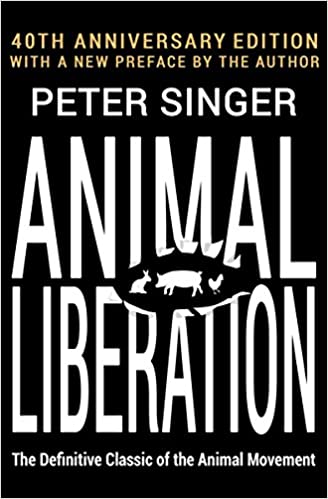 |
Home |
Catalogs |
Contact Us |
Books on:
Animal RightsBlack History
Clean Energy
Democracy
Eco Design
Eco History
Food and Nutrition
Genetic Engineering
Green Cities
Green Politics
Local Economics
Natural Building
Peace and Nonviolence
Simple Living
Trees and Forests
Books on Animal Rights
- Animal Liberation by Peter Singer
- A philosopher explains why animals should have rights.
- Animal Rights: The Abolitionist Approach by Gary L. Francione and Anna Charlton
- We need a paradigm shift. We must see nonhuman animals as nonhuman persons.
- The Case for Animal Rights by Tom Regan
- Asserts that animals have a basic moral right to be treated with respect for their independent value.
- Dominion: The Power of Man, the Suffering of Animals, and the Call to Mercy by Matthew Scully
- Argues for a balance between the cruel and cavalier treatment of animals and the more radical notions of the animal rights movement.
- Empty Cages: Facing the Challenge of Animal Rights by Tom Regan
- Explains why exisiting laws function to legitimize institutional cruelty.
- Environmental Justice by Peter Wenz
- Considers animal rights as one theory of enviromental justice.
- Rattling The Cage: Toward Legal Rights For Animals by Steven Wise
- Explains how the failure to recognize the basic legal rights of chimpanzees and bonobos in light of modern scientific findings creates a glaring contradiction in our law.
- Reinventing Biology: Respect for Life and the Creation of Knowledge edited by Lynda Birke and Ruth Hubbard
- Essays by historians, sociologists, biologists, anthropologists and political activists urge a new science based on regard for other organisms as rational and capable of intelligent thought.
- The Sexual Politics of Meat by Carol J. Adams
- Explores of the interplay between contemporary society's ingrained cultural misogyny and its obsession with meat and masculinity.
- Wild Animals and American Environmental Ethics by Lisa Mighetto
- Places arguments regarding wildlife protection in historical perspective and thus helps us evaluate our inherited attitudes and assumptions about other animals.

